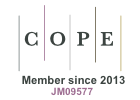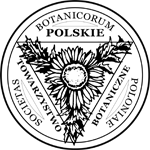Abstract
In Latvia, climatic factors are influential in spreading of Fusarium head blight of cereals caused by Fusarium species. The most significant factor affecting the incidence of the disease in winter wheat is hightened temperature at the time of wheat anthesis. Field trials for the control of the disease in winter wheat were done in 2003-2004 using new fungicides applied at various rates by natural infection and artificial inoculation. Three species of causative agents: Fusarium avenaceum var. herbarum, F. gibbosum, F. culmorum were collected from infected seeds of wheat and used for inoculation of experimental plots at the concentration 106 conidia ml-1 (1:1:1) at the stage of full anthesis. Effective control of the disease was obtained through application of new fungicides with different active ingredient: Prosaro 250 EC (tebuconazole 125 G, prothioconazole 125 G L-1), Input 460 EC (spiroxamine 300 G, prothioconazole 160 G L-1). In conditions of artificial infection by severe attack of Fusarium spp. the application of fungicides containing tebuconazole at T3 gave significant influence on yield of winter wheat through plumpness of grains increase. High efficacy of fungicides against leaf infection with Erysiphe graminis and Drechslera tritici-repentis was also in the trial achieved. Application of fungicide containing cyproconazole and trifloxystrobin at T1 in the trial 2004 gave good control of Septoria tritici, E. graminis and D. triticirepentis.
Keywords
winter wheat; Fusarium head blight; leaf diseases; fungicides; efficacy






